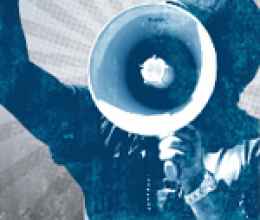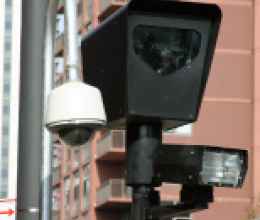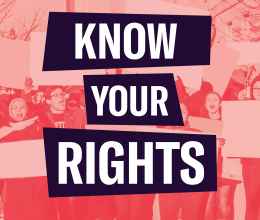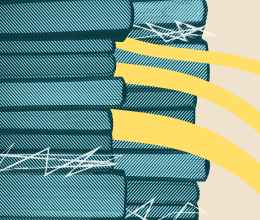
Chicago – A day after a committee approved amended proposed ordinances concerning parades and demonstrations in Chicago, the American Civil Liberties Union of Illinois renewed its call for members of the full City Council to reject the modified ordinance. In response to public pressure, the Emanuel Administration yesterday revised its early proposals, notably returning fines for resisting arrest to their original amount. The proposals first surfaced late last year in advance of the G8 and NATO meetings, scheduled for May 2012 in the city.
After reviewing the changes, the ACLU of Illinois maintains, as it announced previously, that the ordinances should be rejected by the full Council when it votes today. The ACLU notes that the most appropriate course of actions is to leave the rules as currently comprised, since the proposed changes cannot have any practical benefit for safety and security in the City.
“The modified ordinance now proposed still does not enhance security,” said Harvey Grossman, legal director for the ACLU of Illinois. “The best course of action for the City Council is to reject these proposals and send a strong, clear signal that free expression is welcome and invited in the City of Chicago and that demonstrators will not be subjected to the City’s ever-expanding and unregulated system of surveillance cameras.”
The ACLU explained that the proposals continue to contain an ominous provision – the ability of the Mayor to purchase and deploy powerful surveillance cameras across the City without any approval or any oversight. Nearly a year ago, the ACLU of Illinois released a report noting that Chicago’s surveillance camera system – widely recognized as the most expansive and most integrated system in the nation – acts without any public regulation to protect individual privacy. The ACLU called on the City to put a hold on deploying new cameras until the City Council could adopt regulations that require reasonable suspicion before the cameras’ most powerful technologies (zoom, tracking and facial recognition) are used. The ACLU report also called for the City Council to adopt a specific policy on the retention and dissemination of images captured by the cameras.
A blue-ribbon commission headed by former FBI Director Williams Sessions created a model set of public regulations for surveillance cameras that have been adopted in other cities. These modest regulations have not been considered in Chicago.
Responding to the ACLU report, then-candidate Emanuel called for “more transparency” in the way in which the camera system operates. Rather than calling for that transparency, the Mayor is today asking the City Council for a blank check to expand this system without approval from City Council or input from the public.
“The notion that people from across the City might be tracked, monitored and have data stored about them simply for engaging in protests during these international events is not acceptable,” added Grossman. “Without adequate regulation, there is the potential that Chicago will once again, as it did during the days of the infamous Red Squad, compile dossiers on the lawful First Amendment activities of law-abiding citizens
“The addition of thousands of new and unregulated cameras integrated into the City’s massive surveillance camera system will deter some individuals from participating in peaceful demonstrations on matters of significant public policy.”
"The City Council should reject these proposed ordinances, put in place an ordinance to regulate the City’s surveillance cameras and encourage the Mayor and his team to begin negotiations immediately to assure free speech and free expression during these upcoming events,” added Grossman.





